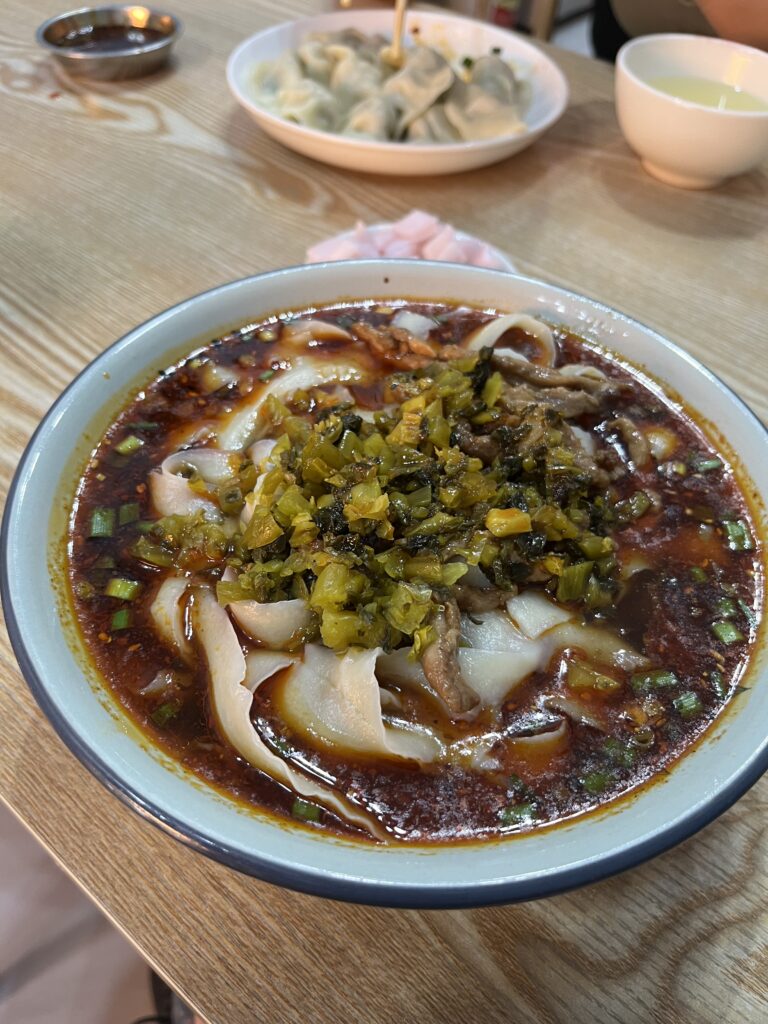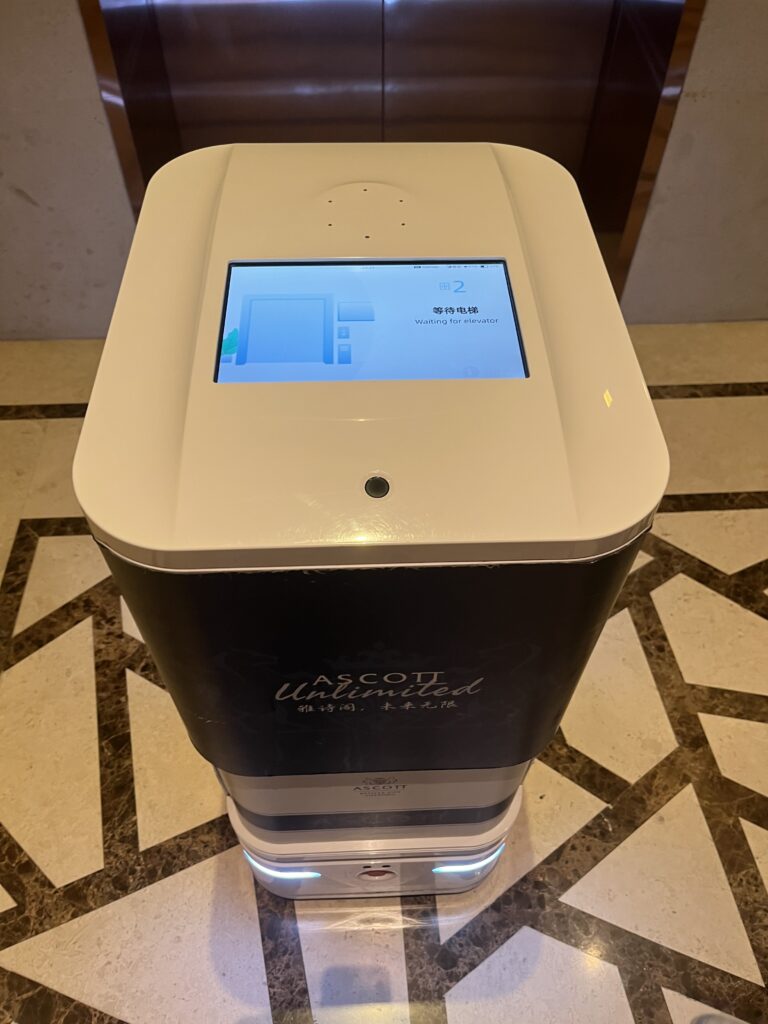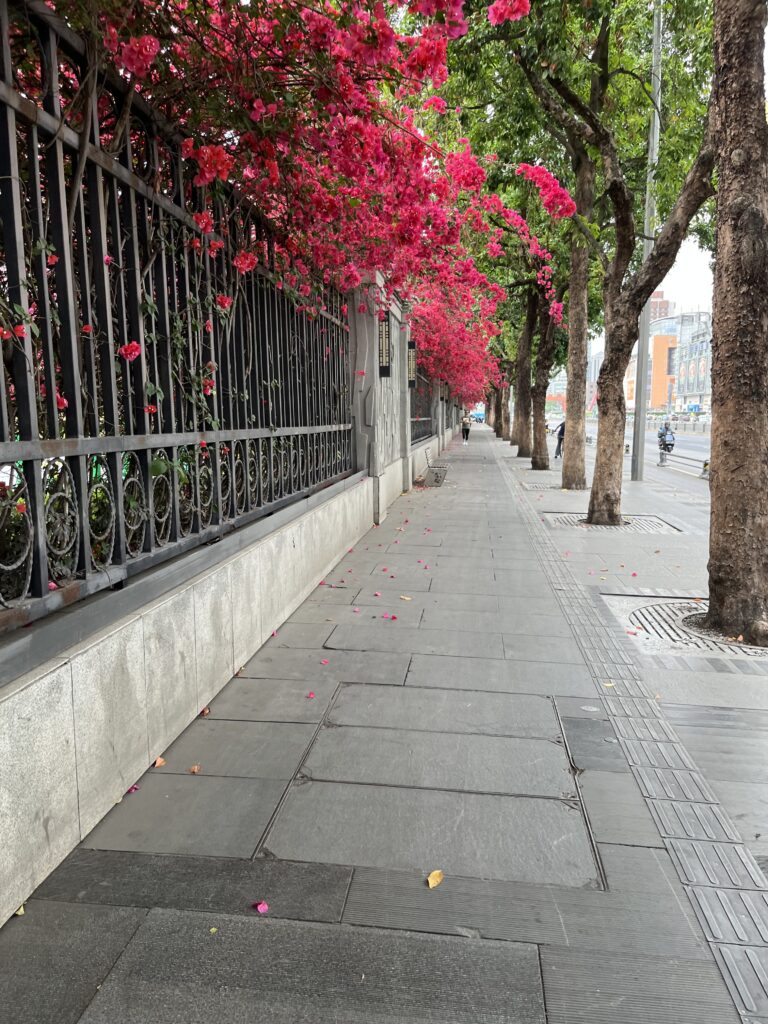I left China in June 2012 and started working on Laowhy: Identity Crises In China’s Capital of Spice while I was a substitute high school teacher. Stuck in rural America I longed to return to China, but couldn’t bear what the urban environment and cultural psyche had done to my soul. Thirteen years later, as a late 30-something white-collar worker of radical origins, I returned to Chengdu. It’s a place that will forever feel like a second home to me, having fostered so much of my personal development and destruction while living and haunting the city from 21 to 25 years of age.
So what changed? How much time do you have? I’m gonna break this down into 3 posts, so I urge you to check back in with me by following @vveilai on Insta or @Anders0skar on the cesspool that’s become of X.
Money
No more red wads of mole-faced Mao’s RMB to wave about. I once saw a man carrying cases of cash to buy a house in 2010. One would think it was a flex, but it was simply how things were done. Shit, I didn’t even hold a bill the entire time I was there. My girlfriend all but laughed at me for suggesting I bring the 31 RMB I had left over in one of my various “treasure boxes.” I figured it would be helpful to have some money to pay for things at the airport or get a snack before I got my phone card and payment apps working. Nope, I left the cash. Damn, it definitely had appreciated in value, but when I was in China there was no appreciation for the currency. Even beggars had QR code lanyards around their necks. The sight was dystopian, straight out of an episode of Black Mirror. The only cash I saw the whole time was in the hands of a Tibetan begging for money for a train to Lhasa when we were out enjoying spicy sticks of chuan chuan xiang. Had I had a few RMB in my pocket, I would have tossed them to him. Woe to him and all panhandlers of the world as the economy moves to digitalization.
The age of WeChat / WeiXin is all-encompassing. Even the baozi breakfast hawkers asked to be scanned.

Not having WeChat set up was awkward. There I was talking a big talk as a Mandarin-fluent laowai, rendered completely useless and broke since I was fiddling with a new SIM card in the back seat of a taxi from the Beijing airport, thinking I’d have it up and running by the time I got to the hotel. Nope, I had to beg the concierge to scan for my siji, dare he curse me out anymore for not having payment. A cool 100RMB note would have taken care of things easy peasy.
I’d even signed up and linked bank cards WeChat with an international fee-waived card, but without an internet connection and a Chinese SIM card, I was penniless. More importantly, laowai cannot just reimburse someone with their phone. You can only scan or send money to vendors, not the random dude at the hotel who fronts money for you. One would imagine this is to avoid international fund transfers or trading currency, or just for Papa Xi keeping his country under wraps.
The biggest buzzkill of WeChat has to be for the underground economy. If payments are tied to your shenfenzheng and credit score, then folks are naturally coerced to “act right.” Whereas the China that I saw had drunk drivers pay off cops, officials bride parking attendants for bumping into other cars, countless businessmen and mafia types snorting ketamine at clubs, hipsters puffing Xinjiang grown hashish, and of course, the pervasive xiaosan and club girl / KTV private encounter culture. You pay for sketchy shit with cash. Are people not doing sketchy shit? Certainly not, but I could tell the surveillance state and digital payments had helped clean up China’s underworld, or at least forced them to invent new fake business fronts.
When asking locals about WeChat, most said it was “good and convenient,” a few taxi drivers complained about “things changing too quickly,” but no one missed having to carry change to break 100RMB bills. At the pharmacy, I had a payment issue and joked with the attendant, as she said WeChat made running a business easy. The humor here is that the verbs “to buy” and “to sell” both phonetically sound like “mai,” albeit with distinct tones. It wasn’t very convenient for her trying to make a sale when it wasn’t working, I told her. But of course, it was a “foreigner problem” she reminded me. “What foreigner problem? I said. I told her I lived here in 2008, and all I needed was a stack of cash, she’d open the register, make some change and it would have been an easy xie xie man zou.
Wrapping up the gripes with WeChat, sure, it was nice to have integrated payment, and everything seemed so futuristic and polished. But what’s the fun in getting a digital hongbao compared to a fat, and I mean FAT, stack of cash? Zoomers and new China hands are missing out on the joy of PAY DAY when it was straight paper. Plus, with rent at only 800 RMB one could truly feel like a ‘baller and either hit the clubs or stack cash under their mattress for an Air Asia trip to Kuala Lampur.
High Tech & Transportation
From robotic floor cleaners in the airport to ordering and paying for noodles with a QR code, tech is embraced everywhere. Phones used to be much simpler, a nice flat (not even flip phone) Nokia with a color screen, and maybe a snake or soccer game was all you needed to CALL your friends or type out text messages on a pay-per-text plan with China Mobile. Only the elites had iPhones around 2010. The biggest draw to a touch screen for us laowai was the ability to draw characters to look up on a dictionary app, making those ~1200RMB Chinese e-dictionaries obsolete. Getting your hands on an iPod touch filled this niche as well.

Now in this life of everything is in the palm of your hand, there’s an even more interconnected world within the WeChat ecosystem of apps. Inside WeChat there are options for food delivery, drive hailing, and heaps of graphic-rich immersive games. The biggest tech crossover in my China era was having a QQ number that could get the same messages on your phone as on your computer. The benefit being that it was easier to type in Chinese on a full keyboard for us pinyin capable laowai.
Beyond the hand-hand, tech was seen in every element of transportation from the all-expansive high-speed rail, to rental bikes, metro, and app-based live tracking, and more. What shocked me the most was what happened to train tickets. I planned to visit Jiuzhaigou, a scenic park in a Tibetan area of northern Sichuan that was financially and physically too far from my reach in my 20s. Now, with a high-speed rail, it could be a more manageable trip if you were willing to elbow through the massive crowds.
So, when we bought the tickets online, I expected an e-ticket or an app.
“Hey JQ, where are our tickets?” I asked looking through our hotel window at the lighted pagodas on the Jinjiang.
She didn’t really want to go, and we planned it around midnight the night before, her coming to terms with me as the-seat-of-my-pants brand of traveler.
“We will get them at the train station,” she said, detached, more interested in her book and a handful of grape gummy snacks from Family Mart.
The next morning, I imagined there would be some sort of kiosk I’d have to queue at, yet another step for non-ticket holders. In my day, we had to buy a paper ticket from a special window counter at a national train ticket office scattered around the city. I don’t think there was even an option to check online to see what train offered what class of tickets; you simply showed up, told the nice lady your destination, and prayed for a ying wo (hard sleeper) ticket to make the 12- 20+ hour endeavor more hospitable. There were times when a last-minute or late purchase resulted in a wu zuo ticket, literally meaning “no seat.” On that trip, I made friends with ethnic tribes of Yunnan sitting or standing betwen the train cars across from the bathroom with a Zapatista bandana tied tight over my face from the foul smells and cigarette smoke. I was headed north from Lugu Lake back home to Chengdu during the Chinese New Year. I’d never wanted to do that again. My global cycle-trekking friend @dirteecabbana has had some record-breaking 40+ hour wu zuo adventures. Lose your paper ticket and you’d get to enjoy wu zuo!
With the fear of wu zuo instilled upon me, I did not want my now more Western-standard vacation to be sullied by such an experience.
We arrived with minimal time until departure at the massive new Chengdu Railway East (North used to be my OG hub) to a sea of folks funneling towards unmanned gates. No ticket window in sight and very few staff, save for the riot police with their scorpion-like grab nets. I was scolded for having an open bottle of qinqgjiu in my backpack, which was confiscated by security. Nowadays, EVERYONE is forced to undergo security scans at the metro and train, this being a country where guns are already illegal, what are they looking for, contraband, drugs, counterfeit Chanel bags from Guangzhou?
I feel for the OG smugglers; more security and no more cash puts a dent in their trade. The 10 RMB loss on the liquor I bought was more for nostalgia laughs, but oddly enough, I was allowed to drink a Guinness on the train. Nowhere were the new rules posted, other than the smoking bans, which I greatly appreciated.
Back to the point. Once we found the correct “human corral” for our train, I was like, okay, where the f**k are our tickets?
“It’s in your passport,” JQ said.
No, I don’t have a Chinese shenfenzheng, that’s what people are scanning, it can’t work,” I replied, ever anxious of becoming a wu zuo.
“Yeah it will, just go over to the passport lane, dumbass,” JQ prodded.
There it was. I joined the longest queue of overseas Chinese with Malay or Singaporean documents. After pushing back against some line cutters, I had my “blue book” scanned, and voila, I was on the train.
No app, no more “oh shit moments” when you need to wifi to pull up an email receipt, just show your ID and get on the train. Great innovation? Yes. But not so great for the “negative elements, or those whose social credit score falls out of favor and demarks their status.
If everything is tied to the shenfenzheng then it’s not “shape up or ship out,” it’s shape up or don’t, go anywhere…!
In terms of AI and translation, there are digital tools that auto-translate by listening or scanning. I’ve heard on Reddit that there are many a laowai who’ve resorted to Google Translate or other tools for their entire trip. While I didn’t use such tools, and no, it’s not a flex, it’s worth noting how much more of the China experience is opened up with all of these technological innovations. Zero Mandarin and a brick Nokia phone wouldn’t take you far in the early aughts. You’d be falling for those “tea” or “painting” tourist scams by the Great Wall and soon be phoning home for a wire transfer!
Didi
The days of being a big nose or an old ghost are much easier. One would have to wave feverishly at green taxis as they passed, nearly doing SOS arm-swinging to catch the attention of a sjji with a kong che “empty cab” light up in his cab. Even with an empty ride, they’d often pass you by, ah laowai, too much mafan– and naturally it was too much trouble.For not only did many folks not know how to speak Chinese, but pronouncing the correct street name was often a challenge even for those of us who did have a few years of putonghua under their belt.
I recall once tearing out sections of GoChendgoo magazine to point at bar addresses or the map. Again, this was the day before smartphones ruled us all. Another method for directing drivers was to prep a text message to yourself or type out the characters of the address. This was a more advanced strategy, as learning Chinese is quite the challenge. There are words you can speak but cannot read, then there are words you can type but cannot speak (properly), and even if you speak properly, the driver could either only speak sichuanhua or simply pretend not to understand since it was a foreigner speaking.
Wow, so Didi allows you to bypass all of that and just type in your address and wait for your car to arrive? Yep, and at a rate even cheaper than a taxi. Plus, the payment is also handled in the WeChat ecosystem. Sure, it’s convenient, but I fear that this convenience makes one miss out on the true “cultural experience” that life or travel in China can offer. Those who Didi everywhere will never know the challenge of reading a bus line route in size 8 font, trying desperately to scan for the name of a street close to them. Finding your way home on the bus for 2RMB was certainly a rare victory. Even mishaps led to unexpected adventures around the city, a way to fully appreciate of the “man zou” lifestyle.

I remember when the subway line 1 just opened. It was a straight shot from the south past Tianfu Square and ended at the North Railway Station. It was modern, sleek, and convenient if you lived near Tongzilin or the US Consulate (now closed) and wanted to go strictly uptown. Now, with 12 odd lines and two airports, it’s as if I’m an uncle who’s watched my little nephew grow up.
Tech is changing society in many ways, from the phone-slooped shuffle on streets to the lack of banter at dinner tables. It’s not just in China; we are seeing this behavior everywhere. I agree that foregoing the wallet or bank card and paying by phone is easy. But it simply keeps people spending more time on their phones. We all have experienced the phone loop, and once you take it out to check the weather, you then find yourself programmed to shuffle through email, stocks, and social media. All you wanted to do was take it out for one specific task. If we must rely on scanning menus and paying for beers at a bar with our phones, that’s a massive loss for human interaction, for jokes about mispronunciation, for small talk, for asking if a stranger has chi fan le ma?
It was Jello Biafra of the Dead Kennedys who wisely named one of their punk albums “Give me your Convenience or give me Death,” and that was back in 1987 when people used pagers! Tech is certainly a double-edged sword, one which China has embraced fully, with the U.S. lagging far behind, but treating it with a healthier dose of skepticism.
Have you been to China recently, or are you an old China hand? Curious to hear your thoughts by leaving a comment below.